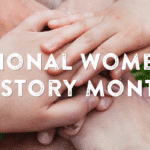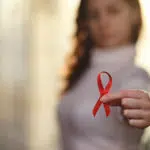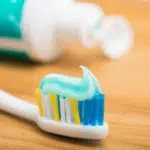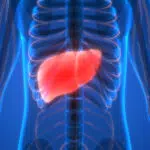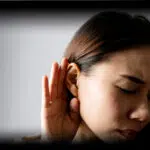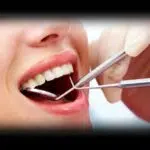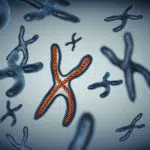During Menopause Month, let’s talk about it openly. It’s a normal, natural part of the aging process, yet many women are still worried about going through menopause. Sure, there are some less desirable symptoms that accompany changing hormones — like hot flashes — but there are also things to celebrate, such as no more periods, PMS, or worrying about unwanted pregnancies. Add to that the increased self-confidence, self-awareness, and greater freedom that menopause often brings, and October can become a time of amazing personal growth and excitement. Embrace it, don’t try to erase it!
History of Menopause Month
Menopause Month was created as a means to raise awareness of the stage in a woman’s life when she stops menstruating. It helps women understand the possible health issues associated when approaching, during, and after menopause. The World Health Organisation (WHO) and the International Menopause Society designated October as World Menopause Month. October 18 was also dubbed as World Menopause Day.
In England in the 1800’s doctors prescribed a pre-meal mixture of carbonated soda to their menopausal patients. Opium and cannabis were also prescribed by doctors to curb menopause symptoms. Other remedies included a large plaster (belladonna) placed at the pit of the patient’s stomach, and some even gave out vaginal injections of acetate of lead. Doctors were then surprised when hysteria was one of the many symptoms presented.
In the 1890s, Ovariin was prescribed by doctors. Ovariin was made by desiccating and pulverizing cow ovaries. It was one of the first known commercially available treatments for menopause symptoms. By the 1930s menopause was being described as a deficiency disease. Over time Hormone Replacement Therapy (HRT) became commonly used and is the most sophisticated remedy for menopause symptoms to date.
The first World Menopause Month was in October 2014. The International Menopause Society promoted it and launched a campaign called ‘‘Prevention of Diseases After Menopause.’’ The aim was to bring awareness to chronic diseases that were more likely to affect women after menopause.
Menopause Month timeline
The play consists of 25 comedic songs about menopause, covering topics such as food cravings, hot flashes, and memory loss.
Ayerst Laboratories started selling Premarin, a still-popular estrogen replacement therapy that helps with menopause symptoms.
Merck begins marketing Ovariin, made of desiccated and pulverized cow ovaries, as a remedy for menopause symptoms.
A French physician named Charles Pierre Louis De Gardanne coined the term la ménépausie (menopause) in 1821.
Though the word menopause didn't yet exists, the philosopher decided it started at age 40 and noted women couldn't bear children after age 50.
Menopause Month FAQs
How do you know you are going through menopause?
There are some common normal signs to look for. Those include irregular periods, hot flashes, sleep disturbances, and mood swings. These are all the result of unevenly changing levels of hormones in your body.
When is World Menopause Month?
World Menopause Month is observed in October.
When is World Menopause Day?
World Menopause Day is October 18.
How to Observe Menopause Month
Pause to reflect on the liberating aspects of menopause
Use the newfound independence an empty nest brings to pursue the passions and projects you’ve put aside until now. Put the focus back on yourself and what makes you happiest.
Share information openly
Starting a frank discussion about menopause helps clarify and demystify it. Use your experience to help others be better informed and approach the process with less anxiety.
Add exercise to your daily regimen
Studies show exercise does wonders for reducing any bothersome menopausal symptoms. For instance, yoga can help manage hot flashes. Downward dog away!
5 Facts About Menopause Month
Only whales, gorillas, and humans go through it
Other animals continue reproducing throughout their lifespan.
One in three women has problems associated with menopause
Of those, only one in 12 suffer from depression.
Asian women have fewer hot flashes
The theory is that larger amounts of soy in their diet account for the difference.
No one knows why menopause happens, but there’s an interesting theory
The "grandmother" hypothesis assumes females stop having children so they can help existing ones to ensure the gene pool continues.
Your brain might be the cause of hot flashes, not hormone fluctuations
This theory postulates that the reason for hot flashes rests in the hypothalamus gland, which regulates body temperature.
Why Menopause Month is Important
It can impact your health
Hormonal changes after menopause may bring changes in sleep, heart health, and bone density. Consult with your doctor to ensure your body is functioning at optimal levels and take steps to mediate any issues.
It reinforces the natural, normal process involved
Back in Victorian times, menopause was seen as a disease to be treated with all sorts of misguided “remedies” like belladonna, injectable lead, and pulverized cow ovaries. Dedicating a month to talking about the realities of menopause — and how NOT terrible it is — can help change the negative attitudes many people still hold.
Suffering in silence is out
If you are among the one in three women who experiences issues in menopause, know there are many options for managing your symptoms. Consult your doctor, try an herbal remedy, go for a walk or run. Keep at it until you find what works for you.
Menopause Month dates
| Year | Date | Day |
|---|---|---|
| 2025 | October 1 | Wednesday |
| 2026 | October 1 | Thursday |
| 2027 | October 1 | Friday |
| 2028 | October 1 | Sunday |
| 2029 | October 1 | Monday |



